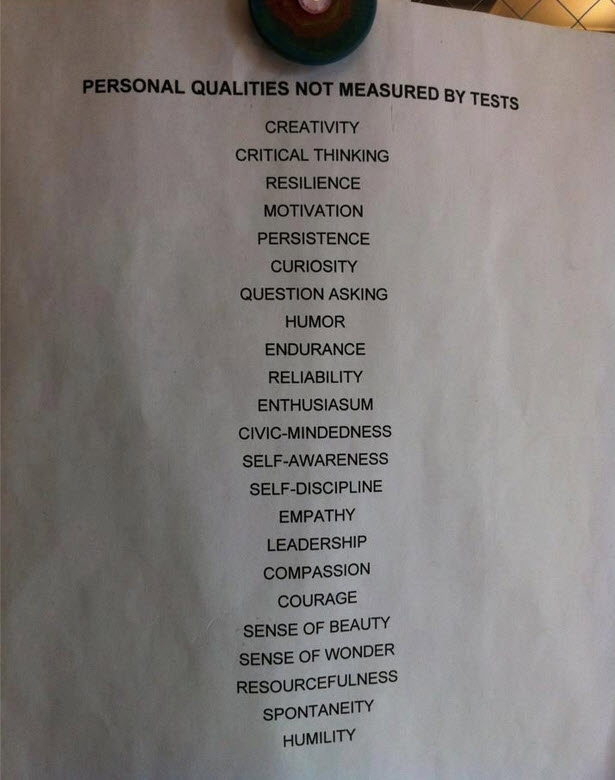Personal qualities not measured by tests
Here is a well constructed list that those who do well on SAT tests should carefully review.
CREATIVITY
CRITICAL THINKING
RESILIENCE
MOTIVATION
PERSISTENCE
CURIOSITY
QUESTION ASKING
HUMOR
ENDURANCE
RELIABILITY
ENTHUSIASUM
CIVIC-MINDEDNESS
SELF-AWARENESS
SELF-DISCIPLINE
EMPATHY
LEADERSHIP
COMPASSION
COURAGE
SENSE OF BEAUTY
SENSE OF WONDER
RESOURCEFULNESS
SPONTANEITY
HUMILITY
Paul Tough, who wrote How Children Succeed: Grit, Curiosity, and the Hidden Power of Character, would add "grit."

